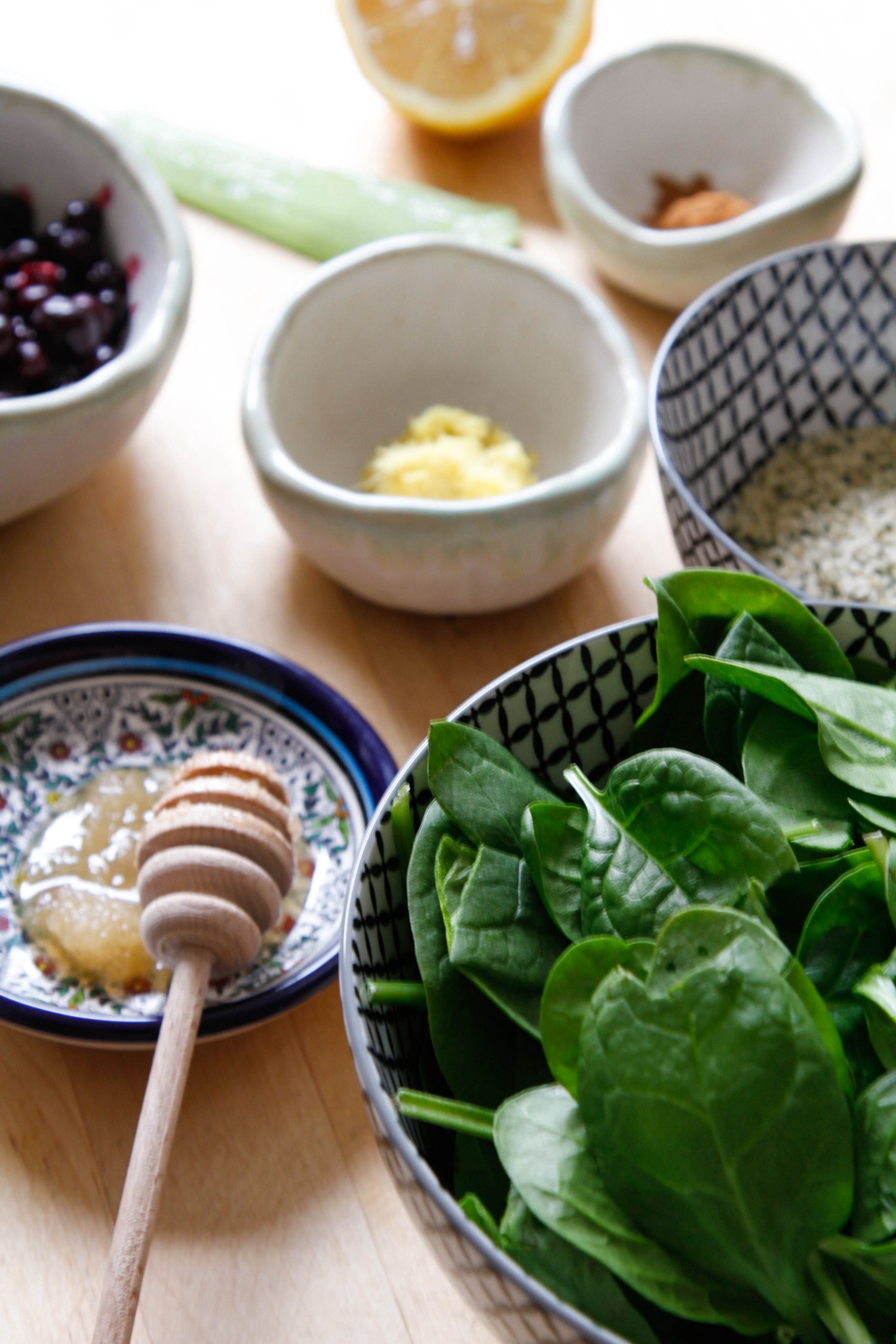Aloe Vera
The aloe vera plant has long been used as a means to soothe and cool inflamed and irritated skin. Whether it is a sunburn or rash, aloe vera provides soothing relief so it only makes sense that this medicinal plant can have the same benefits on our digestive tract. It can ease and calm cases of digestive upset or chronic conditions such as Crohn’s disease. A study by the “British Journal of General Practice” showed that aloe helped facilitate the healing process with internal sores and ulcers of the stomach and intestines.
Aloe Vera is rich in vitamin A, C, E and B12. It can support memory, learning, and overall mood and has been shown to aid in digestive health and improve absorption. Due to it’s high mucilaginous properties it helps cleanse the intestines because it moves food along the path to excretion. By assisting in the timely clearing of the intestines, it allows for essential nutrients from our foods to be absorbed properly so the body can utilize accordingly.
Try having on an empty stomach in the morning and again at bed for the best effects.

Pineapple
Aside from being high in fiber, pineapple contains a digestive enzyme known as bromelain. Bromelain has been shown to break down large protein molecules into their smaller component parts (smaller peptide groups or individual amino acids) which are then used for numerous processes in the body including muscle repair, molecule transport etc. Bromelain helps to speed up the digestion of these protein molecules, requiring less effort and energy from your inherent digestive system.
Studies have also shown that bromelain helps to balance stomach acid. Our stomach acid is a crucial component of our digestion and overall health because its main role is to sterilize the food that we consume and prevent potentially harmful microbes from entering our system. Stomach acid also triggers pepsin to digest proteins.
Ginger
Ginger has been cultivated and used for its medicinal properties for thousands of years. It is known to aid digestion in a number of ways — it can stimulate the production of saliva and bile (bodily fluids that aid in the breakdown of carbohydrates and the emulsification of fats, respectively). Ginger is also a known anti-inflammatory and has been used in cases of chronic intestinal inflammation such as IBD or Crohn’s. Gingerols are the main anti-inflammatory compounds found in ginger and they have also demonstrated antioxidant effects. Zingibain is an enzyme found in ginger that helps to digest proteins and has been used in cases of dyspepsia (indigestion).
Ginger is considered a carminative in the world of herbal medicine meaning it has the ability to calm and soothe the gastrointestinal tract in times of distress. It increases peristalsis in the gut lining, resulting in the softening of contractions and the efficient expulsion of gas.
Bone Broth
Bone broth is a dense source of micronutrients that aid in the rehabilitation of damaged gastrointestinal tract lining. This, paired with the fact that it is extremely easy to absorb because of it’s liquid form, make it a great addition to improve the health of your gut.
The gelatin found in bone broth works to strengthen your digestive health by increasing the secretion of hydrochloric acid (stomach acid) and improves the mucosal coating of the stomach. Gelatin also retains water in the digestive tract, allowing for smooth, regular bowel movements which ultimately leads to an improved overall wellness. The gelatin gets its healing properties from the wide range of amino acids including glycine, glutamine and proline. Glutamine, for example, protects the gut lining and acts as an energy source for the cells in the small intestine.
A study on the benefits of chicken soup showed that the broth contained amino acids that helped to reduce inflammation and improve digestion.
Sauerkraut
Incorporating sauerkraut, or any probiotic-rich food, into your daily eating routine will prove to be very beneficial for digestion. Sauerkraut is a dense source of healthy bacteria and when you consume it, the bacteria populate your intestines warding off harmful bacteria that may cause illness or disturbances in your health.
Probiotics help move food along the digestive tract.
Avocado
Avocado is a great source of dietary fiber. A high fiber diet is essential for healthy digestion because it helps to move food along the digestive tract, it helps us feel satiated so we don’t overeat and many high fiber foods are also prebiotics (indigestible foods that feed the healthy bacteria in our intestines, allowing them to flourish).
Avocados are also high in B vitamins and these are helpful for digestion because they act as catalysts in breaking down food so the body can process it for a source of energy.
Avocados are high in potassium. A potassium deficiency can lead to problems with digestive health including paralysis of the intestines and severe stomach upset.
Turmeric
Like ginger, turmeric has been used in traditional medicines for thousands of years. It has been recognized as a quick and effective cure for digestive upset. It is rich in volatile oils and therefore has a carminative or soothing effect on the digestive tract. It is also anti-inflammatory and can be used to ease symptoms of various inflammatory digestive issues. Turmeric stimulates the production of bile which works to break down fats in the small intestine.
Apples
Like many foods that are good for digestion, apples are high in fiber — soluble and insoluble. Insoluble fiber does not dissolve in water making it especially favourable for good digestion as it remains in tact and helps move food waste through the intestines to be excreted. Pectin, a naturally occurring substance in apples, may act as a prebiotic — food for our healthy gut bacteria to feed and survive off of.
Water
Water is a crucial aspect of proper digestion. Our gastrointestinal tract must stay hydrated and lubricated in order to effectively move food along to be digested and eventually excreted. Be careful as to not consume large amounts of water while eating because this can dilute the stomach acid making it more difficult to break down and process food.
Fennel Seed
Fennel has a long history of being used to treat a wide range of digestive problems including heartburn, nausea, indigestion, gas etc. Mukhwas is a traditional Indian post-meal snack made from fennel seeds and used to aid in digestion and freshen the breath.
Papaya
Papain, an enzyme found in papaya, has been shown to break down tough protein fibers. Like bromelain, papain can sever peptide bonds, breaking large protein molecules into their fundamental parts (smaller protein units or individual amino acids).
Chia Seeds
These tiny seeds pack a powerful punch. Incorporating just two tablespoons of chia seeds provides your body with 11 grams of fiber, or approximately 42% of your recommended dietary fiber intake for the day. This fiber component helps to move food along the digestive tract as well as to feed the “good” bacteria in your gut, improving immunity and overall wellness. When chia seeds are moistened or submerged in liquid, their inherent mucilaginous properties reveal themselves — this characteristic is very important for healthy digestion. When consumed internally, the gel-like consistency of chia seeds works to soothe and heal any disturbances or irritations along the gastrointestinal tract.
Mucilage also is not absorbed by the body but rather, absorbs pathogens and toxins and bulks the stool for smoother excretion.
Aloe Ginger Blueberry Milk
Ingredients
2 tablespoons fresh aloe vera fillet
1/2 cup frozen blueberries
1/4 cup hemp hearts
1 cup spinach
1 teaspoon ginger, grated
1/4 teaspoon cinnamon
1/2 teaspoon vanilla extract
1 teaspoon lemon juice
1 teaspoon honey
1/2 cup + 1/8 cup water
Directions
Blend all ingredients together in a high speed blender. Drink immediately.
Turmeric Brazil Nut Milk
Ingredients
1 ¼ cup brazil nuts, covered with water and soaked overnight
3 inches of fresh turmeric
1/2 teaspoon sea salt
1 teaspoon vanilla extract (non-alcoholic)
4 cups filtered water
Directions
Ensure to soak the brazil nuts in a bowl of water overnight.
The following day drain and rinse the brazil nuts and place in a high speed blender with all of the other ingredients listed.
Process on high speed until all ingredients are well blended, stopping to taste adjust as needed.
Place a cheesecloth or milk bag in a large wide mouth jar and secure the rim with an elastic band. Slowly pour the “milk” into the cheesecloth, allowing the pulp of the contents to settle in the bag as the liquid pours into the jar.
Before taking the cheesecloth out of the jar, squeeze it firmly with your hands to press out any extra liquid.
Store milk in an airtight container (a mason jar is a good option), for up to 2–4 days.
Shake well before consuming as contents separate while at rest.
Originally published at medium.com


